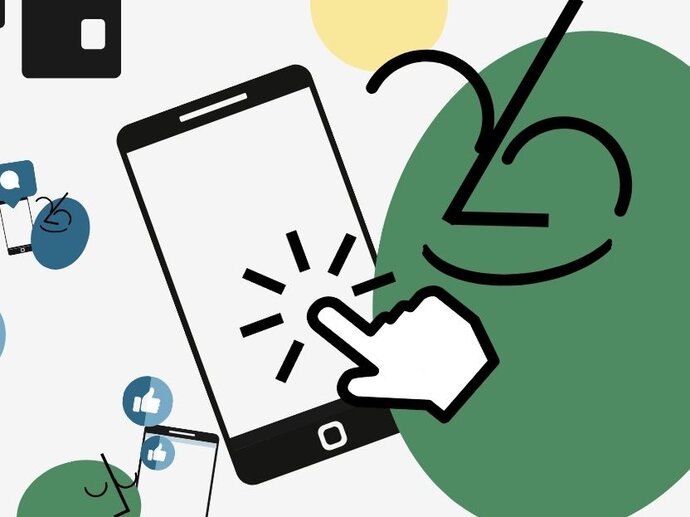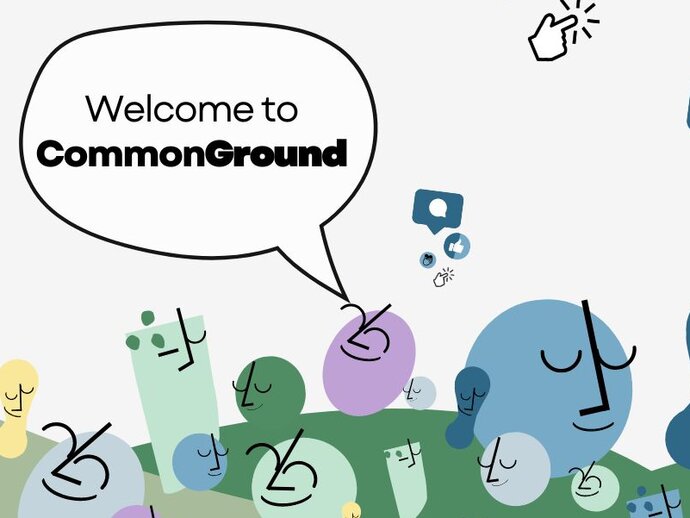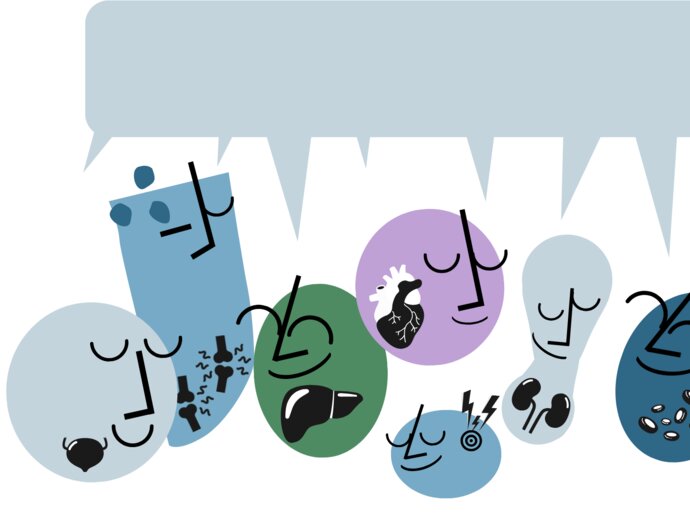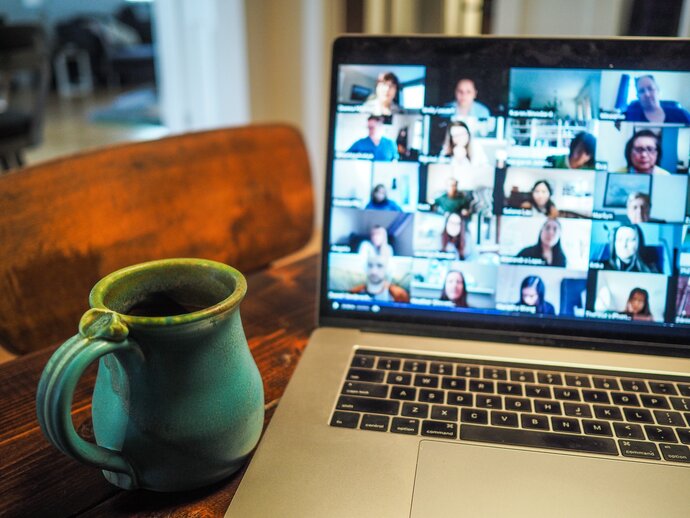Peer Support in Action: Observations from the CommonGround community
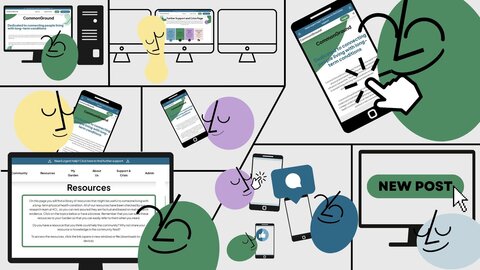
In 2024, our team at KCL conducted a study to find out what people living with long-term physical health conditions thought about a new online peer support platform we have created, called CommonGround. The study aimed to understand what people thought about CommonGround and their experiences of taking part in our research trial. We want to understand whether it is appropriate to conduct a larger study, with more people with long-term physical health conditions, to explore how effective CommonGround may be at supporting their mental well-being.
After signing up to the study, participants were randomly allocated to either the CommonGround intervention group or the control group. The CommonGround group were given access to the peer support platform for three months and could use it as they wished. They had access to an anonymous peer forum where they could post, react to, and comment on posts, alongside a resources page filled with evidenced-based self-help information on various topics relevant to managing life with a long-term condition. The control group were sent emails containing links to the mental health information hosted on the NHS webpages. We invited participants to complete questionnaires at the beginning, middle, and end of the three-month period. We also interviewed some of our participants to delve deeper into their opinions and experiences with the CommonGround intervention, and of taking part in the research trial more generally.
As our team are currently analysing the data we collected, we do not have any final findings to share yet. Once our analysis is complete, we will publish our findings in academic papers and share summaries on this webpage.
Reflecting on the CommonGround Community
While we cannot share any final findings yet, we wanted to highlight some personal reflections from our team about the CommonGround community. It was a pleasure to watch the community grow and see members interacting, sharing, and supporting one another in a virtual space that we spent a long time designing and developing.
Peer support, a core element of our CommonGround mission, involves people with similar experiences coming together to support one another, and involves fostering mutual acceptance and understanding. As peer support is a complex phenomenon, it can be challenging to define or identify, especially in online spaces. This complexity inspired us to ask: What did peer support look like on our CommonGround platform? Elly, a member of our team, shares her reflections.
Many members shared support to those living with completely different conditions, finding common ground to relate to one another.
What were people talking about?
We saw members share what works for them on a range of topics from keeping active to speaking with colleagues about their long-term conditions. We also saw posts where members asked for (and received) support or advice from others. Popular topics have included: about healthcare system and experiences with healthcare professionals, therapy and mental health support, and managing side effects and symptoms. Many members shared support to those living with completely different conditions, finding common ground to relate to one another. We’ve also seen members referring to information that is intended for people with a particular condition and adapting it to their own conditions or circumstances. However, the most popular posts that continued to resurface with new discussion were about the ways members liked to spend their time: favoured past times, adapting hobbies, and many book, film, and music recommendations.
What type of interactions did we see happening?
As well as people spontaneously sharing advice or support, we also observed the power of peer support expressed through many different situations and interactions within the community, including:
- Members asking for advice about specific aspects of their condition
- Members offering support during difficult moments
- Members sharing and celebrating health-related achievements and good days
- Members connecting over common aspects of living with a health condition and offer their thoughts on solutions, like how to have a better experience in a healthcare appointment or how to take care of their mental health.
Was there anything that particularly stood out to you?
The CommonGround platform had an ‘I hear you’ reaction members could select to respond to a post. This reaction was used a lot by our members. A simple ‘I hear you’ can offer validation and make the member who shared their post feel seen, even if an answer or solution to their challenge isn’t always obvious. This feels like an authentic feature in a community that has a need to conserve energy and one where challenges or struggles don’t always have clear or easy answers.
A final thought
Elly was involved as a member of the engagement team when the CommonGround community was running, she shared her lived experience in various posts to encourage discussion and spotlight topics. When asked for any final thoughts, Elly shared the following reflection:
As someone with long-term conditions - I suspect like many others - I sometimes question the benefit of sharing my own situation. It can feel like relating my own struggles or successes in managing my health means focusing on myself and not supporting others. But this has not been my experience on CommonGround. By being honest and sharing vulnerability I’ve received only support and validation of my experiences. This is, I believe, the very definition of peer support.
As we mentioned above, these are just reflections from our research team from our experiences of watching the CommonGround community form. All of the data we collected (including all our questionnaires and interviews) is currently being analysed, and we will share our formal findings on our webpage in the future.
A thank you to our participants
We want to extend a heartfelt thank you to all the people who took part in our research study. Your time, dedication, and openness in participating in the interventions, questionnaires, and interviews have been invaluable. Without participants like you, our research would not be possible. Your contributions are helping us make a real difference in understanding and improving online mental health support for people living with long-term physical health conditions.
